Mental arithmetic Addition & Subtraction Worksheets for Ages 4-6
6 filtered results
-
From - To
Explore our engaging Mental Arithmetic Addition & Subtraction Worksheets designed specifically for children ages 4-6! These worksheets aim to enhance early math skills through fun and interactive exercises that promote mental calculation. Children will develop their ability to add and subtract numbers quickly and confidently, laying a strong foundation for future math success. Our colorful and easy-to-follow worksheets encourage independent practice and reinforce essential math concepts in a playful manner. Foster your child’s enthusiasm for learning while helping them sharpen their mental arithmetic skills. Perfect for both classroom and home use, these resources make math enjoyable and accessible for young learners!
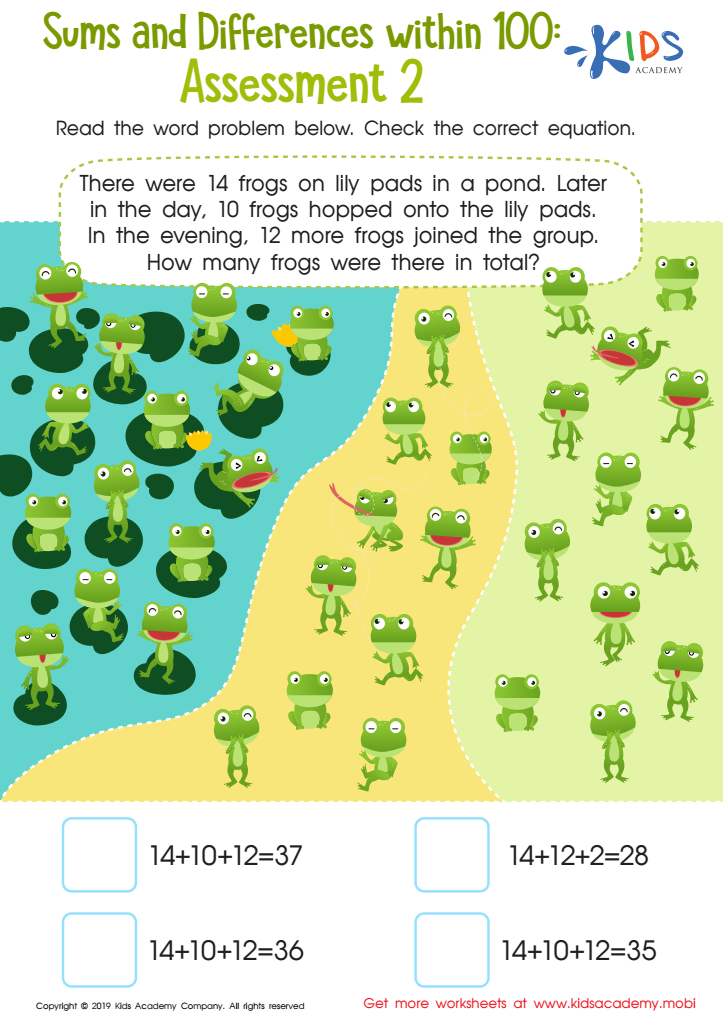

Sums and Differences Within 1 - Assessment 2 Worksheet
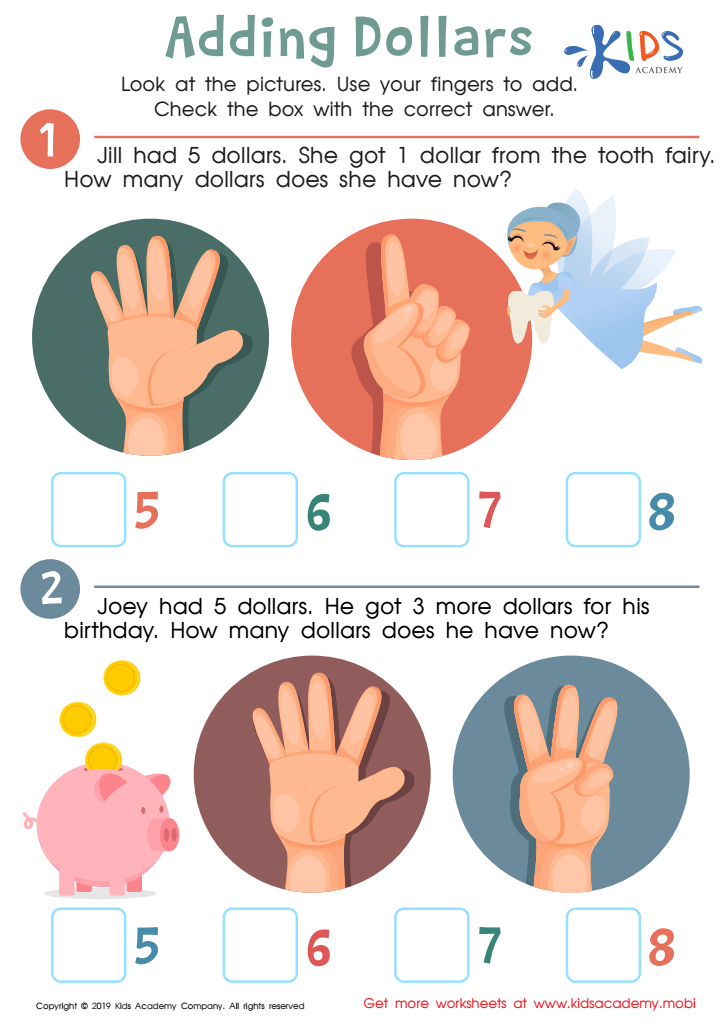

Tooth Fairy Addition Worksheet
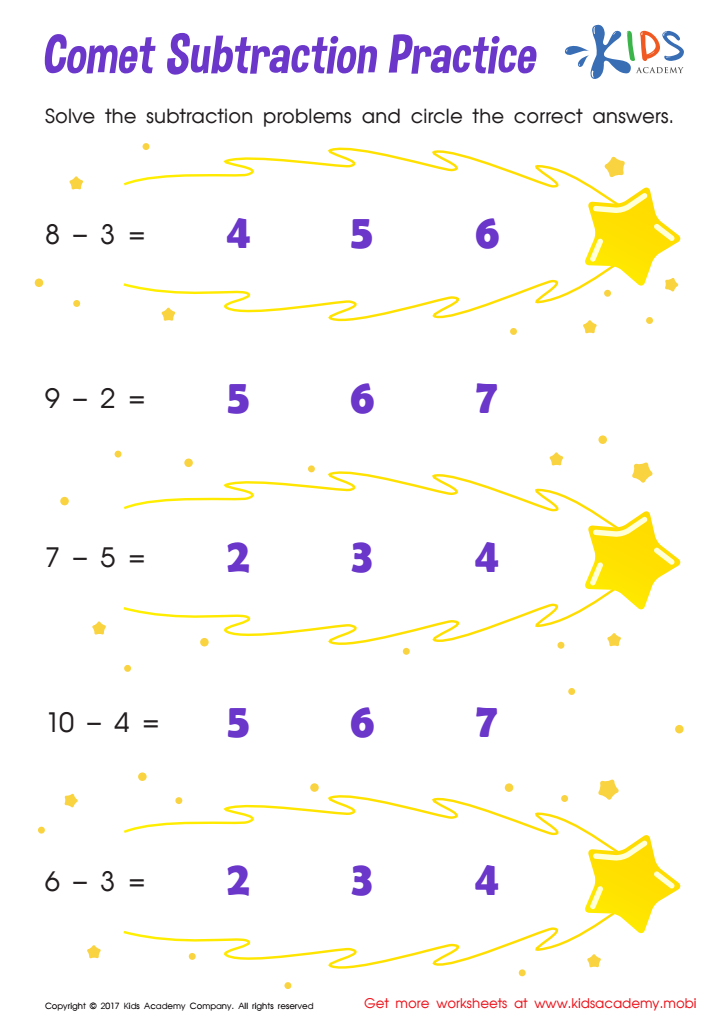

Comet Subtraction Practice Substraction Worksheet
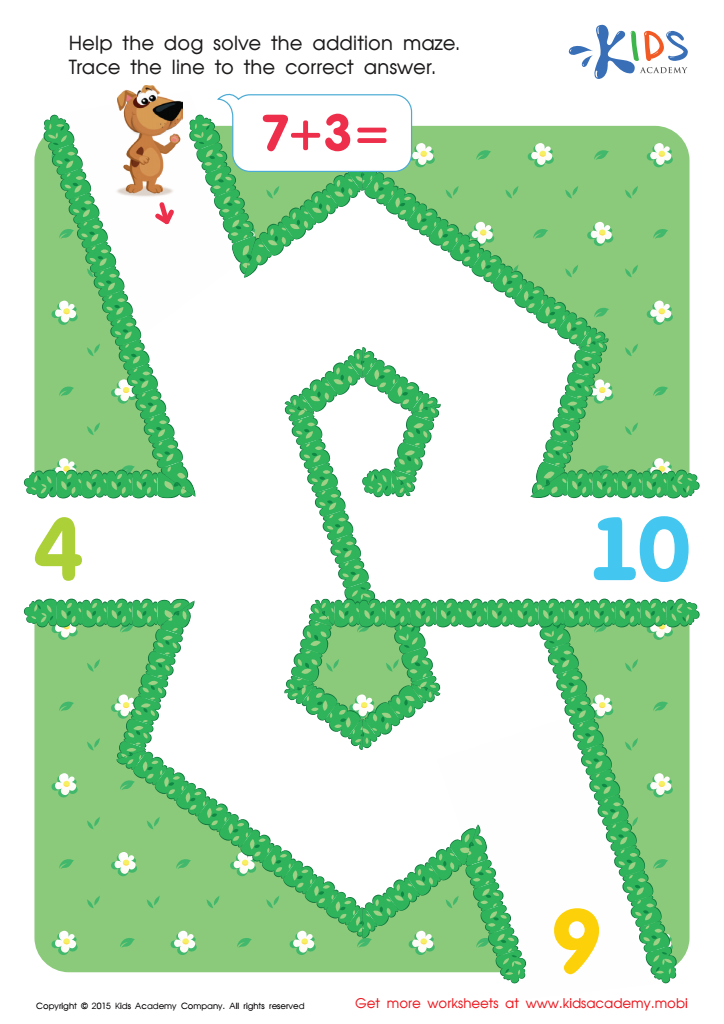

Seven Plus Three Worksheet
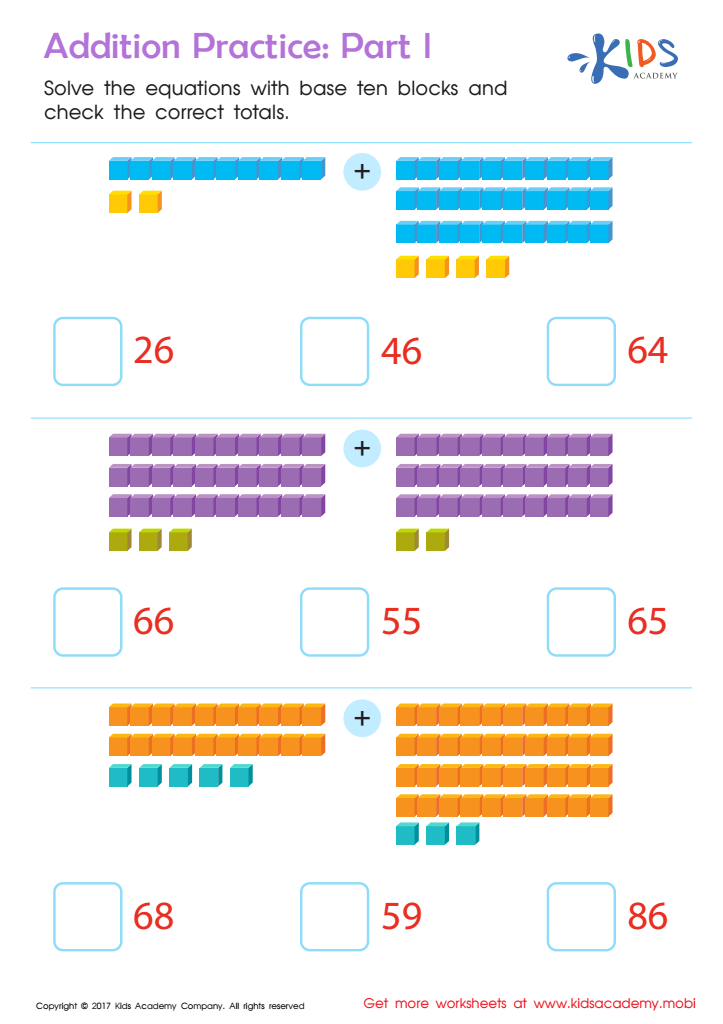

Addition Practice Sheet: Part 1
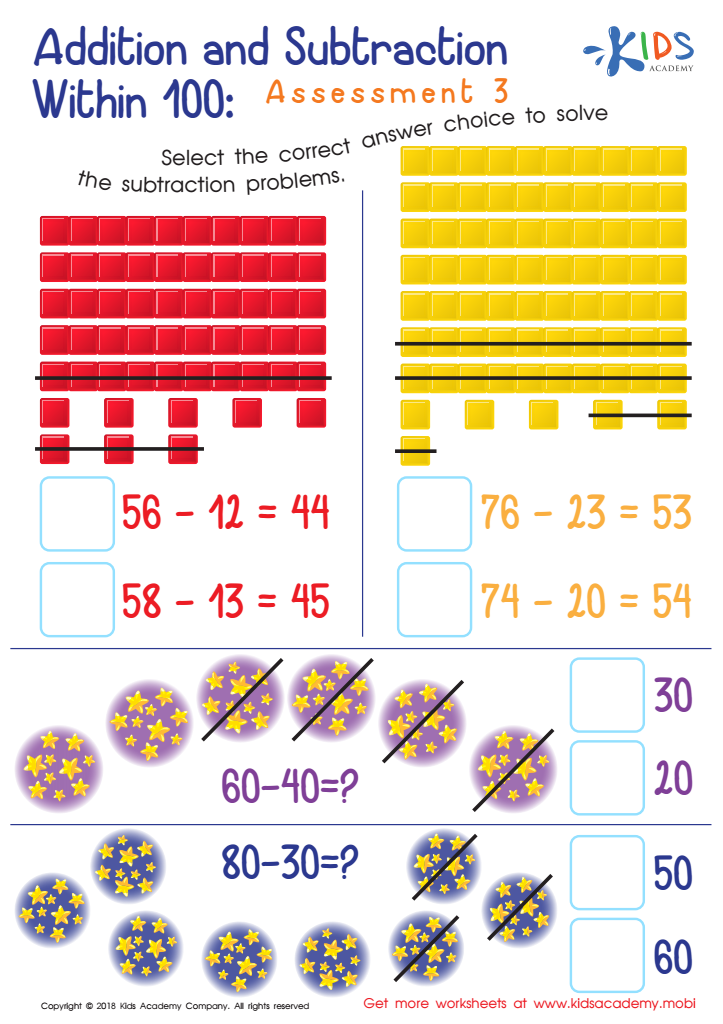

Addition and Subtraction Within 1: Assessment 3 Worksheet
Mental arithmetic, particularly in addition and subtraction, plays a crucial role in the cognitive development of children aged 4-6. This foundational skill not only bolsters children’s numerical fluency but also enhances problem-solving abilities, logical thinking, and self-confidence. When parents and teachers emphasize mental arithmetic, they aid children in developing a robust number sense, which serves as a stepping stone for more complex mathematical concepts.
Engaging children in mental math encourages them to visualize numbers, fostering a deeper understanding of relationships between them. It equips young learners with the tools to solve everyday problems, empowering them to perform mental calculations during activities like shopping or telling time. Additionally, the practice of mental arithmetic strengthens memory and concentration, essential cognitive skills vital for academic success.
Furthermore, mentally engaging with math can be fun, making learning interactive and enjoyable. Incorporating games and challenges at home or in the classroom also enhances social interaction, reinforcing teamwork skills. Therefore, prioritizing mental arithmetic in early education programs ensures that children not only achieve competency in mathematics but also cultivate a love for learning that can last a lifetime.
 Assign to My Students
Assign to My Students





















